Articles by Yamini Aiyar
What 2018 taught us about how not to reform the Indian State
As India heads to the polls, 2019 is likely to witness renewed promises, across party lines, of “maximum governance”. But achieving this goal will require the new government to resist the impulse for seeking quick fixes and confront head on the limitations of the current reform imagination.

Updated on Jan 09, 2019 07:31 AM IST
Yamini Aiyar
India’s challenges need visionary leadership to break political interests
Building a 21st century state requires visionary political leadership that challenges entrenched political interests and pushes policy imagination beyond business as usual
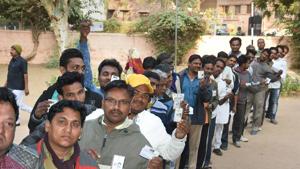
Published on Dec 26, 2018 10:04 AM IST
Yamini Aiyar
India needs a renewed debate on federalism
In these last four years, the BJP has actively sought to use its dominance in Delhi to re-centralise political discourse and re-assert New Delhi’s power.
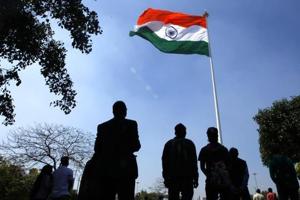
Updated on Nov 28, 2018 06:06 PM IST
Yamini Aiyar
Let’s shift towards a new politics of welfare
If the current election rhetoric is anything to go by, our politicians have failed to recognise the potential for change
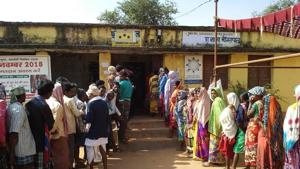
Updated on Nov 15, 2018 01:06 PM IST
Yamini Aiyar
What has India achieved by rejecting the Human Capital Index?
Rather than acknowledge reality and raise questions that elevate the debate on how to develop and measure human capital, the government’s summary rejection has exposed its own small-mindedness and lack of political imagination
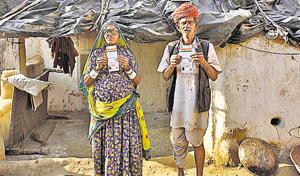
Published on Oct 24, 2018 02:41 PM IST
Yamini Aiyar
How to strengthen India’s frontline bureaucracy
A concerted effort will need to be made for building institutional spaces that break down hierarchies and encourage participation across the political and bureaucratic hierarchy. The PM certainly has the rhetorical skills to initiate this change. What’s missing is the will and vision.

Updated on Oct 11, 2018 12:37 PM IST
Yamini Aiyar
There are no short cuts to building State capacity
Fixing India’s broken welfare system is about investing in the people that make the State. As the Aadhaar debate rages on, this must not be forgotten.

Updated on Oct 05, 2018 03:20 PM IST
Yamini Aiyar
When data becomes political it also becomes vulnerable
For all the data the NDA government routinely showcases, citizens’ know far less today about the government’s performance than ever before

Updated on Aug 28, 2018 04:55 PM IST
Yamini Aiyar
How NRC is legitimising exclusion
The State’s excessive reliance on documents for proving citizenship is leading to harassment
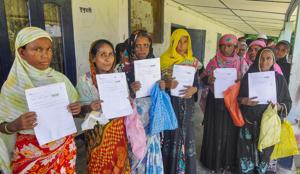
Updated on Aug 15, 2018 11:49 AM IST
Yamini Aiyar
Are bureaucrats turning politicians?
Establishing direct communication between the Centre and districts will entrench centralisation

Updated on Jul 26, 2018 12:05 PM IST
Yamini Aiyar
The politicisation of transfers has undermined teacher accountability
Networking and building relationships with politicians is for teachers a necessary survival tactic and therefore a legitimate activity, relegating teaching to the background. Teachers, on their part, have used their access to politicians to game the system.
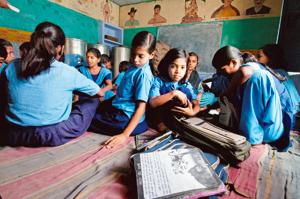
Updated on Jul 10, 2018 11:00 AM IST
Yamini Aiyar
Look beyond rules to reform the bureaucracy
Prime Minister Narendra Modi has rightly characterised India’s bureaucracy as a 19th century administration struggling to tackle 21st century challenges. But building a 21st century bureaucracy requires changing the frame of the current debate on reforms to move beyond rules and procedures to focus instead on institutionalising a new culture of trust and deliberation

Updated on Jun 01, 2018 01:02 PM IST
Yamini Aiyar
Four years of Modi government: Confused priorities hit welfare strategy
Jobs, skills and startups have given way to a medley of social sector schemes – housing, sanitation, gas connections, health insurance – that are being used to craft this government’s primary political message.
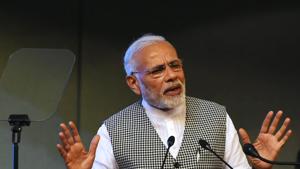
Updated on May 26, 2018 09:48 AM IST
Yamini Aiyar
Why the Aspirational Districts Programme may not change anything on ground
In building an outcome-focused, data-driven framework Niti Ayog has taken an important step. But data is not a substitute for entrenched implementation failure.

Published on May 15, 2018 02:51 PM IST
Yamini Aiyar
Time to deepen the federal dialogue
Our fiscal architecture will have to navigate tension between the imperatives of redistributive transfers and rewarding efficient development
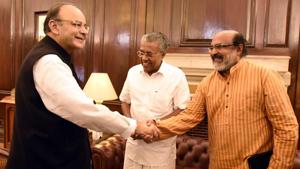
Published on Apr 25, 2018 11:59 AM IST
Yamini Aiyar
No one cares about state budgets
This failure to have a robust debate about state budgets is likely to cost the country heavily. State budgets are entering a period of deep instability as fiscal deficits are on the rise.
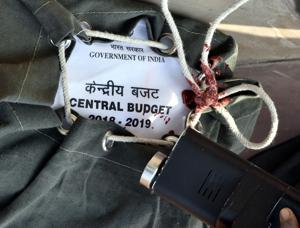
Published on Apr 02, 2018 04:14 PM IST
Yamini Aiyar
Why simultaneous elections are bad for India’s democracy
Simultaneous elections runs the risk of undermining the representative gains that political decentralisation of the last two decades have made
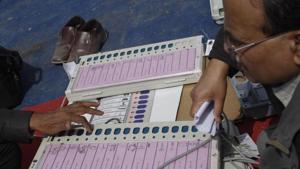
Updated on Mar 16, 2018 04:29 PM IST
Yamini Aiyar
A better education administration will be decentralised and focused on learning
The shift to learning outcomes is a clear signal that education policy makers are breaking out of the input trap to focus on the learning challenge. While this focus on measurement must be celebrated, attention is also needed on the even greater challenge of translating measurement to action

Updated on Feb 23, 2018 01:00 PM IST
Yamini Aiyar
Budget 2018: No real ease of living for Indians
Improved rural infrastructure, particularly sanitation, housing, roads and the showstopper of this budget: health insurance, are the key focus. A new promise is being slowly constructed

Updated on Feb 01, 2018 07:10 PM IST
Yamini Aiyar
After Budget 2018, Centre and states need to focus more on cooperative federalism
The key challenge to deepening federalism in India, as this ongoing battle over CSS demonstrates, lies in determining the optimal allocation of functions across levels of government. Addressing this challenge will require debate and consensus building

Updated on Jan 30, 2018 02:03 PM IST
Yamini Aiyar
The persistent problem of unspent funds is a symptom of a deeper malaise
The bureaucracy’s culture of centralisation and penchant for paper work are the primary culprit

Updated on Jan 03, 2018 07:53 AM IST
Yamini Aiyar
Union Budget 2017 was a status quo budget for the social sector
The finance minister’s status quo approach to social policy should lay to rest, for the moment at least, the ongoing debate about this government’s attempt to radically restructure India’s welfare architecture.

Updated on Feb 02, 2017 01:00 AM IST
New Delhi | Yamini Aiyar
A fight for better governance
Social auditing, now a mandatory requirement under the NREG Act, demonstrates the need for public vigilance and monitoring of developmental works, writes Yamini Aiyar.

Updated on Jul 24, 2007 12:43 AM IST
None | Yamini Aiyar






